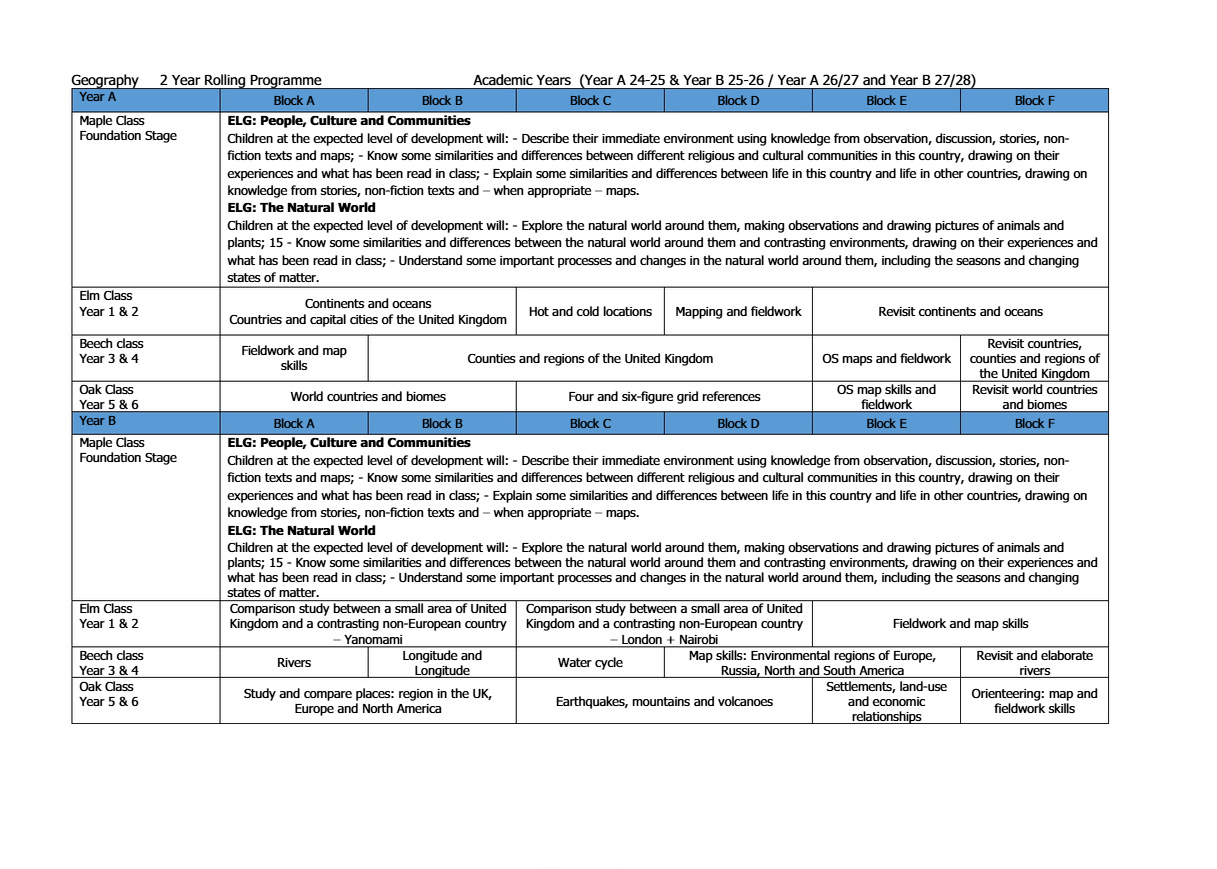Geography
At Penshurst CE Primary School, we follow the CUSP (Curriculum Unity Schools Partnership) geography curriculum, built around the principles of evidence-based practice. The structure is built around the principles of advancing cumulative knowledge, including locational knowledge, place knowledge, human and physical geography, and geographical skills and fieldwork. The children study a broad range of geographical themes throughout the year, based on the 2014 Primary National Curriculum. The CUSP curriculum allows the teaching of knowledge that is used to identify world continents and oceans, comparing Britain to different world regions, building and developing geographical fieldwork and map skills, as well as learning about the geography of the immediate locality.
Intent
The intention of our Geography curriculum is to inspire children’s fascination in learning about the world, facilitated by exceptional teacher instruction that allows the acquisition and application of knowledge and skills.
Implementation The CUSP Geography curriculum is organised into blocks with each block covering a particular set of disciplines. Children throughout the school will examine key substantive concepts of geography including Locational Knowledge, Place Knowledge, Human and Physical Geography and Geographical Skills and Fieldwork. At the same time disciplinary knowledge is embedded, the use of this substantive knowledge and how children become more expert as a geographer, such as making connections, rational perspectives, sustainability and regional inequality. The CUSP curriculum has been modified to take into account our mixed aged classes and is delivered as a two-year rolling programme.
Impact
A guiding principle of the geography curriculum is that children become more geographically ‘expert’ with each study and grow a broadening and coherent understanding of the world, ensuring their geographical knowledge is not fragmented. Vocabulary, both specific and associated, is taught alongside and within geography units. Teachers will use the information gathered through formative assessment to address gaps and to provide additional challenge for children as required and appropriate. This is most effective when done immediately and at the point of learning.
-
PDF Downloads

